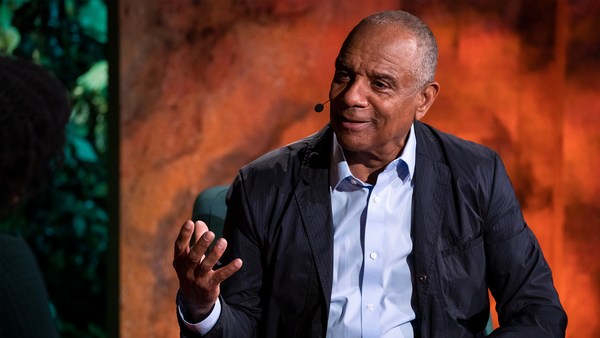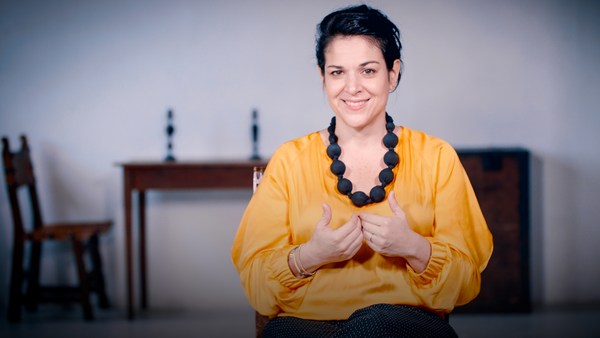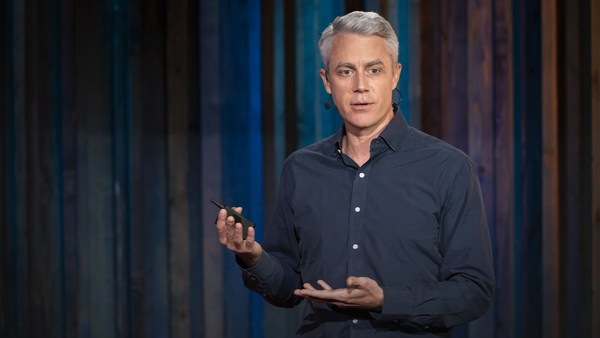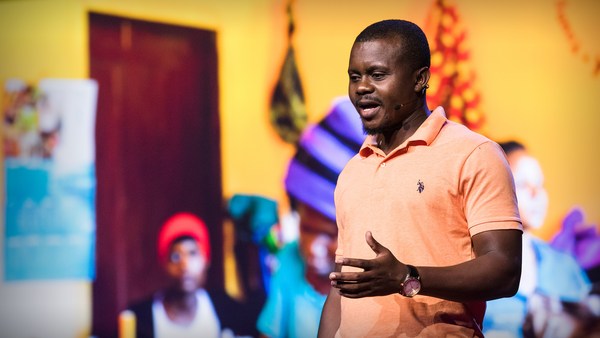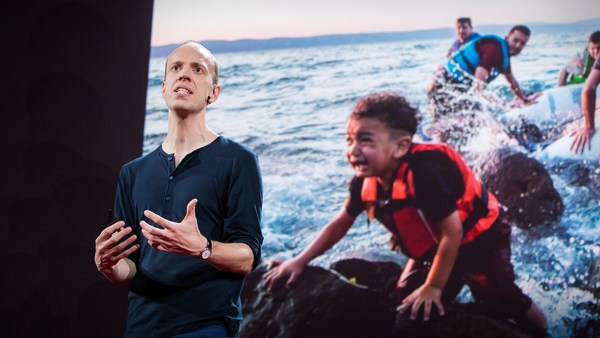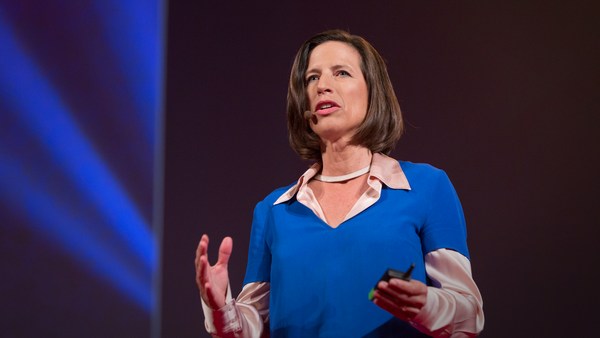When you think about innovation and technology, you're most likely thinking about the latest app on your smartphone, or maybe you think about rockets going into space. But what about some of the world's biggest challenges, like global hunger or climate change? They can seem overwhelming or, you know, maybe you just think there should be a nonprofit organization that takes care of that. But why is it that we think so traditionally about some of the world's biggest challenges?
I believe innovation and technology can help tackle some of the world's biggest challenges. The barrier is our own thinking. And there's something about this where big global challenges are no different than big global business challenges. So let's change that.
Let's talk about one of those topics, global hunger. Hunger may seem like a remote problem for you, but the effects of it are pretty drastic. Hunger means you do not have enough calories on a daily basis to live a healthy life. And there is up to 811 million people on the planet who are hungry. So what can we do about it?
I think innovation and technology is the answer. A couple of years ago, a friend and I realized that United Nations World Food Programme can feed a child for a full day for only 80 cents. We were shocked. We thought, if more people knew about this, if we made it easy, imagine you were having dinner with your friends and you're enjoying yourselves, wouldn't you want to share your meal with a child in need? And that's exactly why we founded an app called Share the Meal. It's so simple. With one tap on your smartphone, you can share your meal with a child in need for only 80 cents.
And I'm excited to tell you it's working. Over 130 million meals have been shared so far by six million app users across the globe. And Share the Meal was even an app of the year in 2020 by both Apple and Google.
(Applause)
When we started Share the Meal, we had to push really hard to make it a reality. There just weren't so many support mechanisms out there to support social entrepreneurs, when you compare it, for instance, with the number of start-up accelerators for for-profit ventures. Coming from that inspiration, I got the opportunity to start the World Food Programme’s Innovation Accelerator, exactly with the goal of replicating what Silicon Valley does well, but for global social impact. It's a start-up accelerator that supports start-ups and nonprofit innovations globally and helps them scale to disrupt global hunger.
So let's look at two of those examples. The first one is about blockchain. Now, when you think about blockchain, you may think about Bitcoin or cryptocurrencies, but that's not how we think of it. We use blockchain technology so that refugees can go into stores and purchase food. It's an innovation called Building Blocks. And why blockchain? Blockchain helps because it's not my blockchain or your blockchain, it's the neutral blockchain network. And that way it makes collaboration among aid organizations much easier. And how does it work? Every month, aid organizations transfer money to individual blockchain accounts, and then that individual can go into a store, shop for the groceries and at the checkout they pay with the iris scan or with another authentication method. That innovation had first been submitted to us by a World Food Programme finance officer who participated in our innovation boot camp. He then developed a prototype and tested it only two months after starting, in Pakistan with about 100 people, and the next pilot was already with 10,000 refugees in Jordan. And that was so successful, that that solution scaled to over 100,000 people within seven months. And right now, Building Blocks is reaching about one million people, transferring over 300 million dollars of cash to people in urgent need of food.
(Applause)
And here's another example. Did you know that corn flakes and a lot of other cereals have added vitamins and minerals? That's called food fortification, when you add critical nutrients to staple foods we eat every day. That's particularly important when people do not have access to a healthy diet or maybe they cannot afford it. This is where social business called Sanku comes in. Sanku has developed an internet-enabled machine that fortifies maize flour at small mills in Africa. Now they have a market-based model that helps provide fortified, nutritious flour to their clients of the small mills at no additional cost. Right now it's reaching up to three million people and scaling further.
So, does it work? Can accelerated innovation and technology help us tackle some of the world's biggest challenges? When we first started the World Food Programme Innovation Accelerator, it seemed like a crazy idea that innovation and technology can help us make a meaningful impact on global hunger. But since starting in 2015, we've consistently doubled the number of people reached every year through the innovations that we've supported. In 2021, we've positively impacted the lives of 8.6 million people already. And now we even run accelerator programs for other global problems like primary health care, vaccine delivery or gender equality.
Imagine what the impact could be if you take action today as an individual, as a company, or maybe as a start-up founder. Innovation and technology can enable so much good in the world, and together we can solve the world's biggest challenges.
Thank you.
(Applause)
